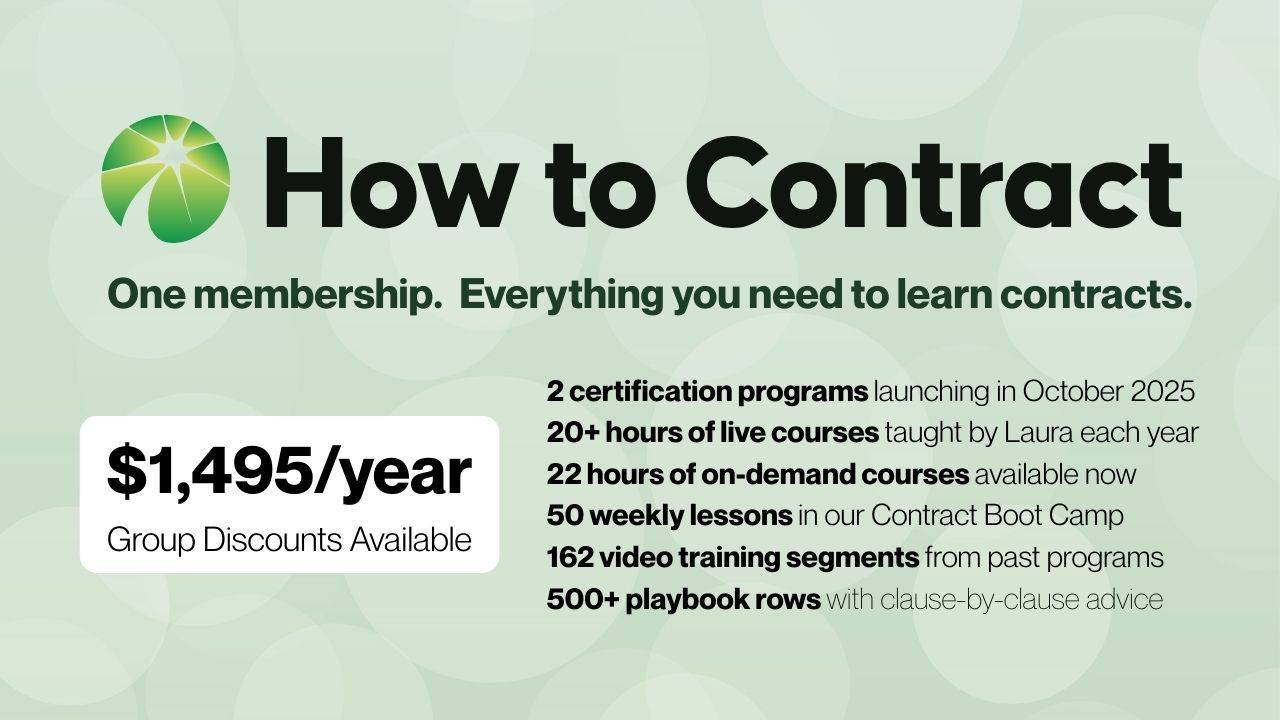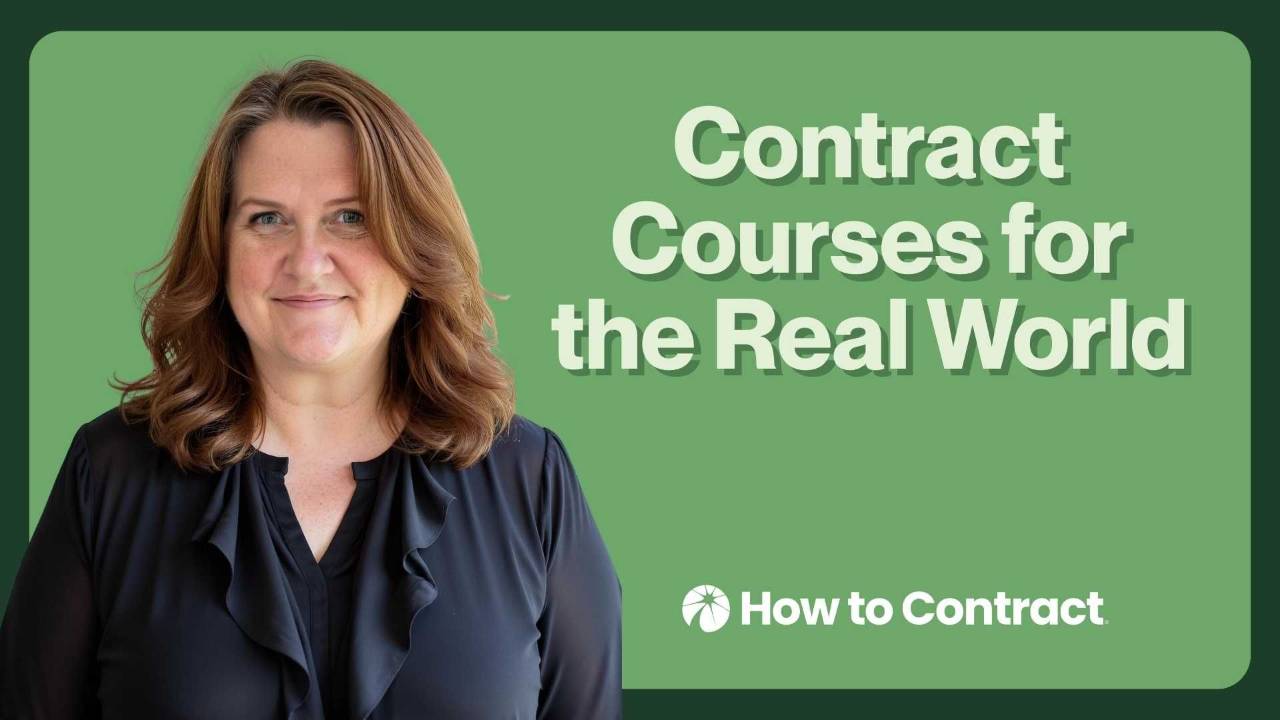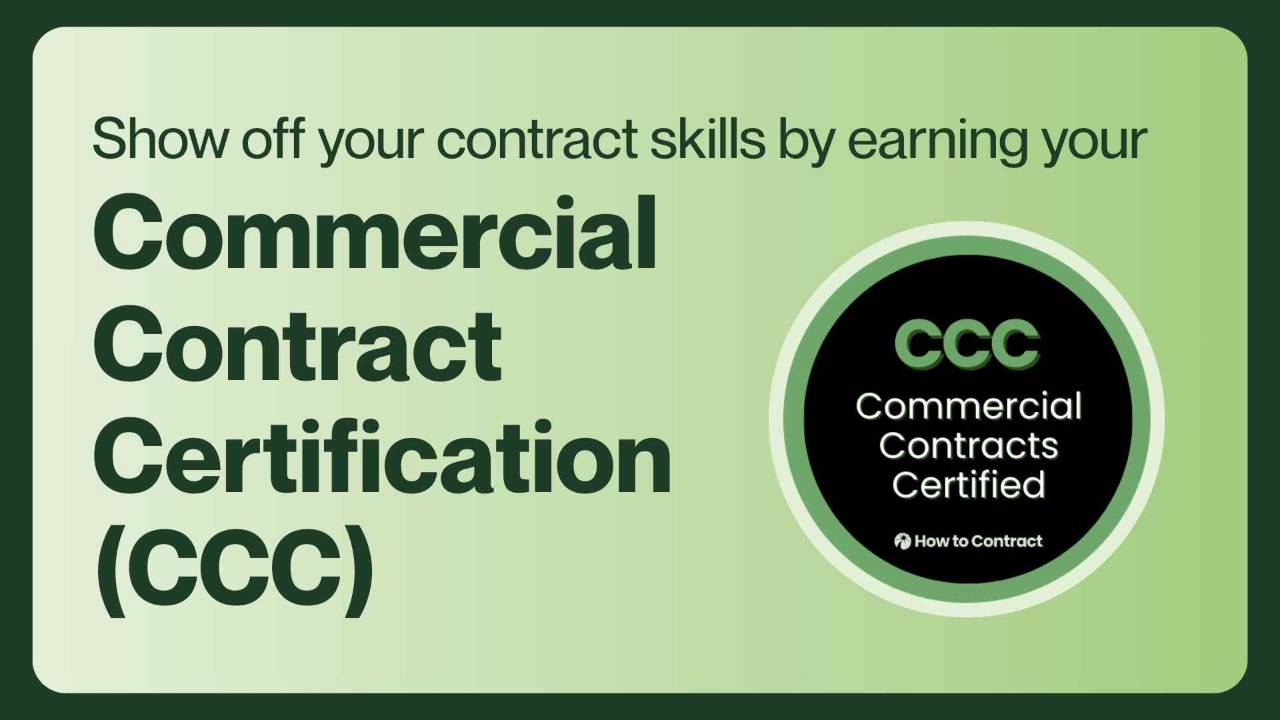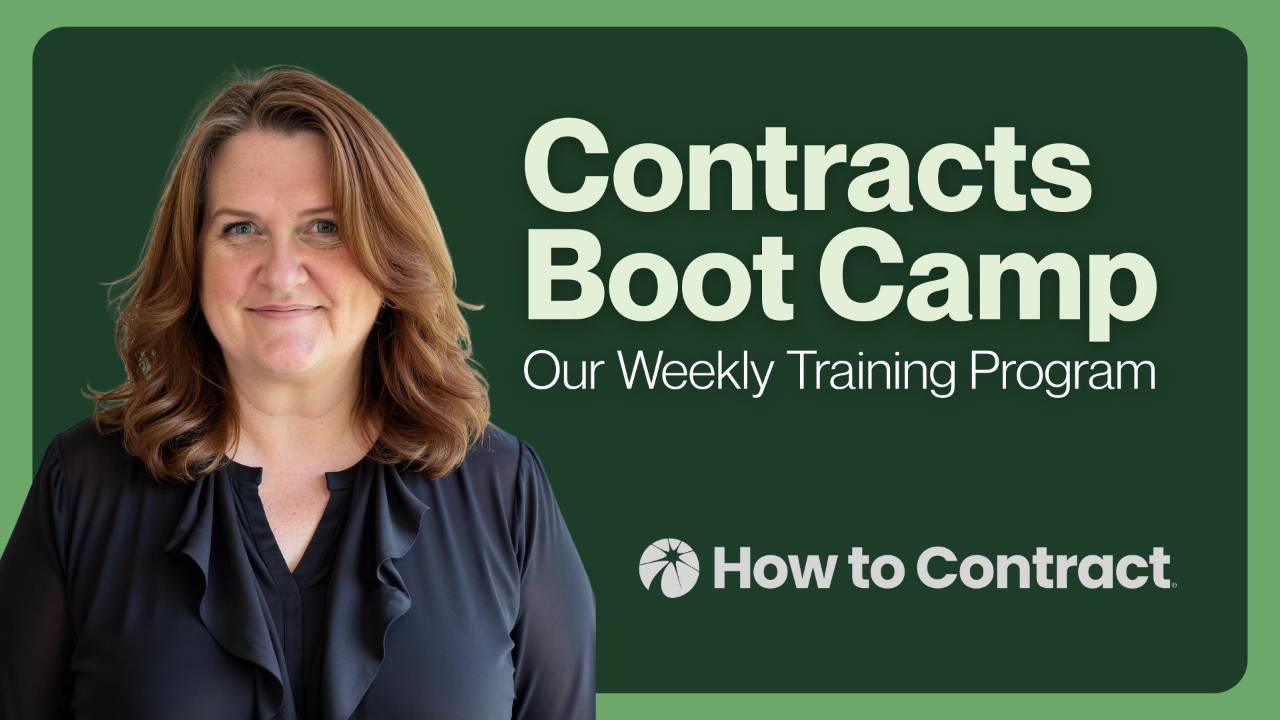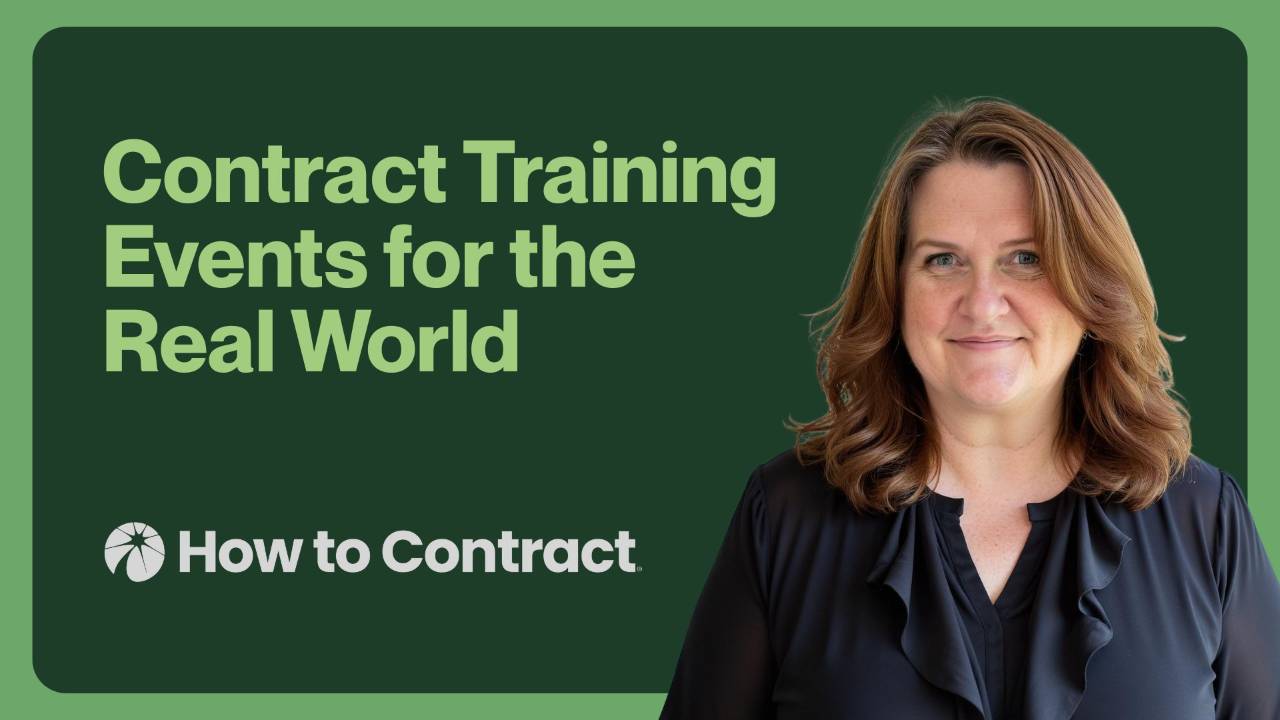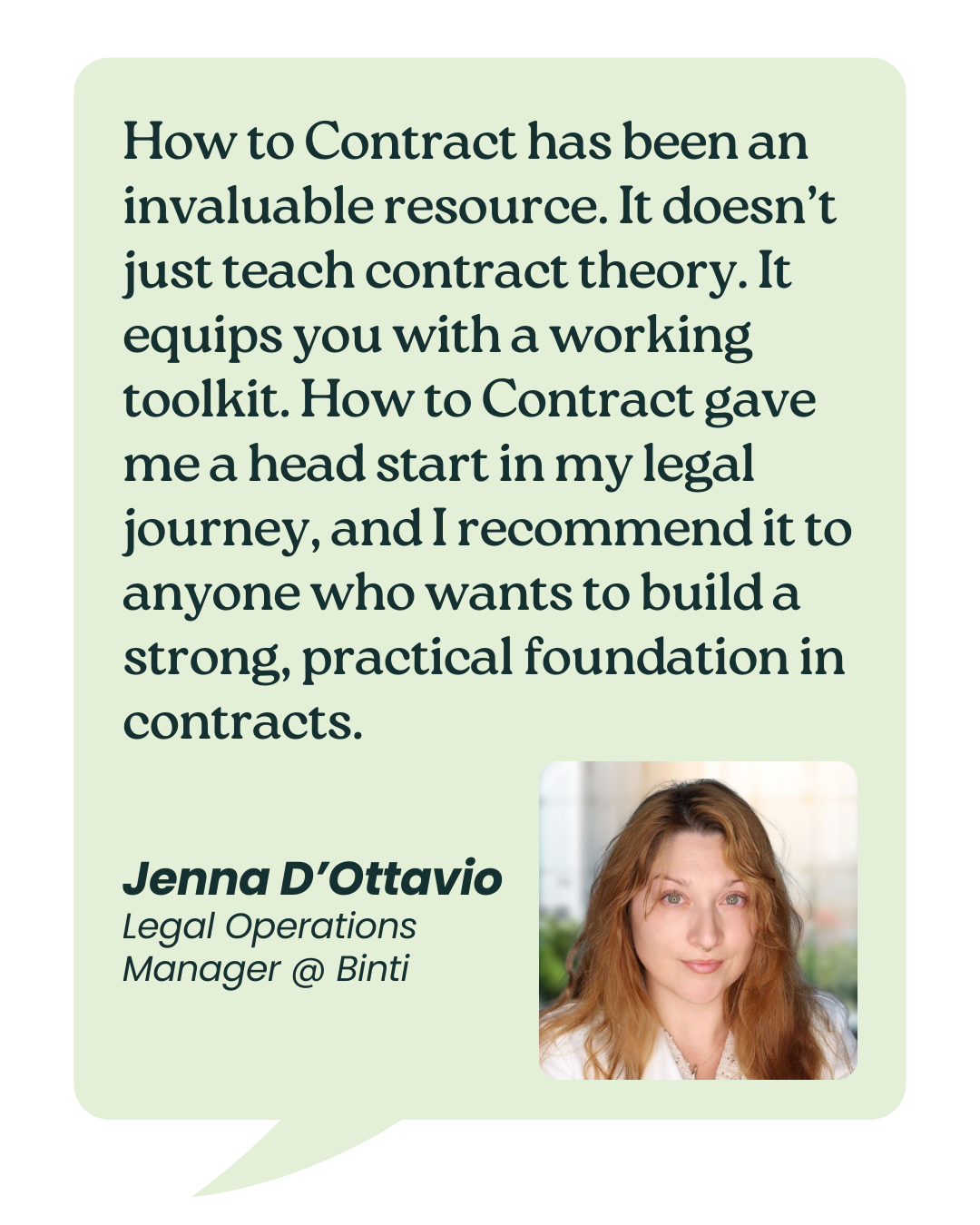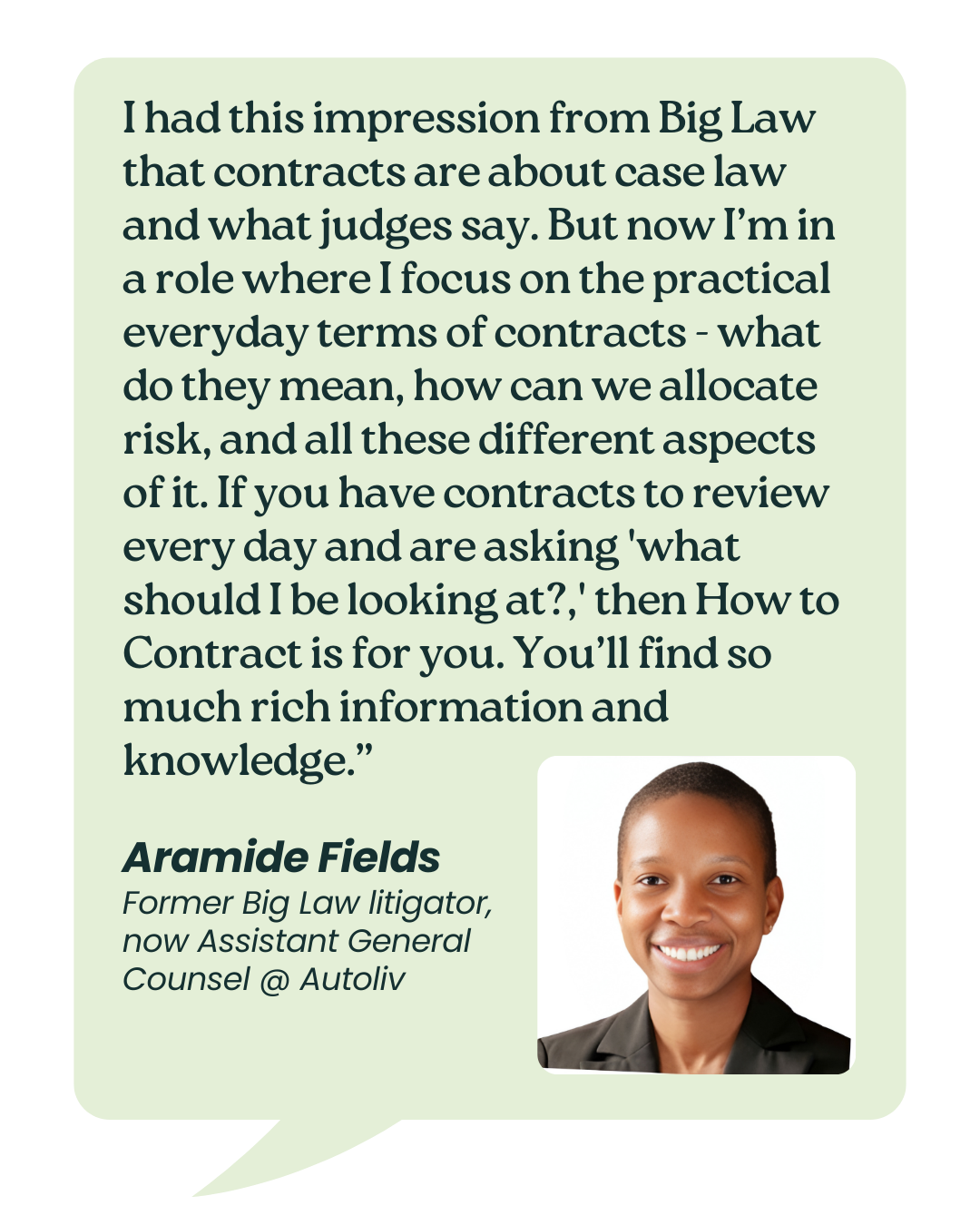
How I Contract: Insights from Cory Sumsion, Head of Commercial Legal at Sygnifyd
We interviewed Cory Sumsion, Cory Sumsion, Head of Commercial Legal at Sygnifyd as part of the How I Contract interview series designed to offer various perspectives from experienced lawyers and contract professionals on what works in contracts in the real world.
Overcoming Early Contract Challenges
What was your biggest challenge when you started working with contracts? If you could go back in time, but keep all the knowledge and experience you have now, how would you deal with it?
I think the biggest challenge when I started working in contracts was the expectation of reviewing every word in every contract.
You’re the attorney; don’t mess it up for the business.
If I could go back in time, I would slow down, talk more with the business, and identify what really matters and what doesn’t.
Most of the time, getting the deal done quickly and “good enough” is more valuable than taking more time for incremental improvement at the expense of the business's needs.
Evolution of Contract Drafting Techniques
How have your contract drafting techniques changed over the years? What did you stop doing? What did you start doing?
I was fortunate enough early in my in-house career to have a manager with a lot of experience drafting contracts.
She provided helpful training by offering sample clauses and then walking through how to redline or respond to redlines.
The emphasis at that time was to review each contract from top to bottom, redlining anything that needed fixing, regardless of price or materiality.
Being a new attorney, I figured this is what attorneys do when reviewing contracts. This was a great way to learn contract drafting, but I also remember many negotiations around terms that wouldn’t have mattered if they were changed or not.
When I started working for another company, we were facing an overwhelming volume of contracts with limited resources.
As a team, we determined that in order to be successful, we needed to focus our efforts based on dollar value and risk factors. By focusing on key clauses that are the most critical to the company, we became a more strategic in-house legal team.
For nearly a decade, this strategy proved successful and dramatically reduced the volume of contract work for legal, improving the turnaround for the business teams we supported.
Over the years, I learned to focus on what matters and not get bogged down in reviewing every term, with exceptions for certain critical or strategic deals.
Biggest Lesson Learned in Contracts
What’s your biggest lesson learned in contracts?
I have learned so much over the years and am still learning today. There are a few lessons that, in my opinion, have had the most impact.
Know your business and take smart risks.
Not every contract needs the Rolls-Royce treatment (as I mentioned above).
Have a list of what clauses (and what part of those clauses) are most critical to your company, and focus on those.
Dealing with a large volume of contracts can be like an ER room.
You need the ability to assess the issue, address it quickly, and move on.
When we act with strategic focus, we become a more seamless partner with our business clients, addressing the needs of the company.
Remember that during the negotiation, you are usually building a partnership that should benefit both parties. It’s a give-and-take. It is a balance to advocate strongly for your company and be okay to give on terms that aren’t as important to you.
Contracts are mostly a business document with a few legal clauses.
The business should be as involved in understanding the terms of the deal as the attorney. They should have more details about the specifics of the deal than the attorney.
Providing some basic contracts 101 training with your business clients goes a long way to reduce the anxiety of a contract.
Key Areas to Watch in Contracts
What’s one of the easiest ways to screw up a contract?
Agreeing to terms that you don’t understand.
For newer attorneys, don’t be afraid to ask questions — be humble and teachable.
There can be the expectation that the attorney should know everything, but this isn’t reasonable.
There are interplays between certain clauses in a contract (e.g., indemnification vs. limitation of liability vs. warranty), and if you don’t fully understand what you are doing, you can adversely impact your client's obligations and/or remedies.
If you don’t understand what the deal is about, ask.
A great colleague of mine would tell his clients to explain it to him like he was a 5-year-old.
This sounds silly, but if you are working on a very technical deal and you don’t understand the specifics, there is a likelihood of screwing it up.
Simple Hacks for Contract Drafting and Negotiation
Are there any simple hacks our readers can use right away to improve their contract drafting and negotiation skills?
Read and research.
It sounds simple, but there are countless articles, videos, training, documentation, and contract experts to follow (shameless plug for How to Contract — thank you very much, Cory!) that will give you the tools you need to improve your drafting and negotiation skills.
Ask questions.
I think most attorneys are happy to share their experience and help others when they are asked.
Draft your contracts so that they are straightforward and the terms are clear so that anyone who picks up the contract understands what it’s about.
Don’t stick with fancy words just because they are fancy.
Recognizing Influential Mentors
If you could give a shoutout to one (or more) person who has influenced your life in contracts (or is your mentor), who would that be?
There are so many who have influenced my contract drafting over the years: Marie Flores, Greg Lorenzon, Gus Casas, Mitch Evers, Tony Plachy, Luke Adams, and I’m sure I’m missing others who will be in tears that I didn’t list them.
Unasked Question You Would Ask
What interview question would you like to be asked and how would you answer it?
Why is it important for attorneys and business professionals to work closely with each other?
I am a strong proponent that an effective in-house attorney should also wear a business hat.
It may take some time to build trust, but once you do, you add more value and create a powerful team driving substantial impact for the company.
Next Interview Suggestion
Who should we interview next? Why?
I think Anthony Plachy or Greg Lorenzon would be an insightful interview. They are both very skilled attorneys doing some amazing transformative work as in-house counsel.
Thank you very much, Cory!
How to Contract's membership is designed to help you build real-world expertise with commercial contracts. Get access to our comprehensive system of live and on-demand courses, weekly lessons, detailed playbooks, and more. Join today!

